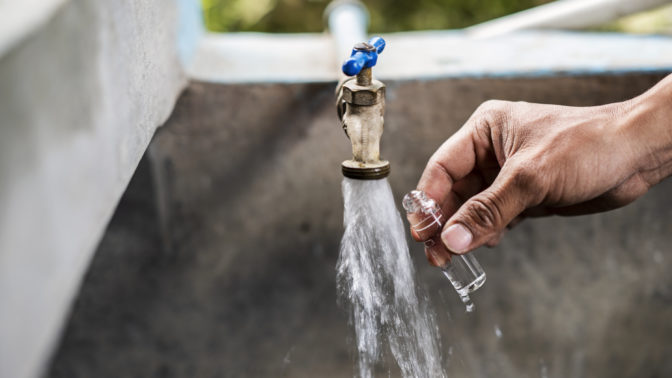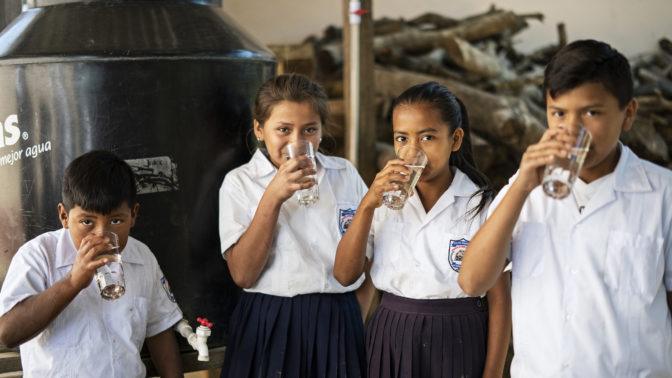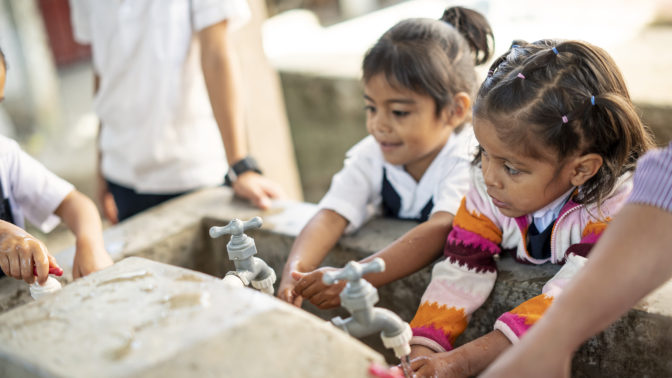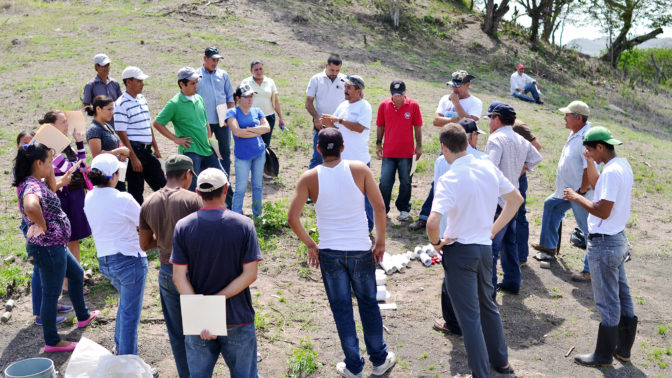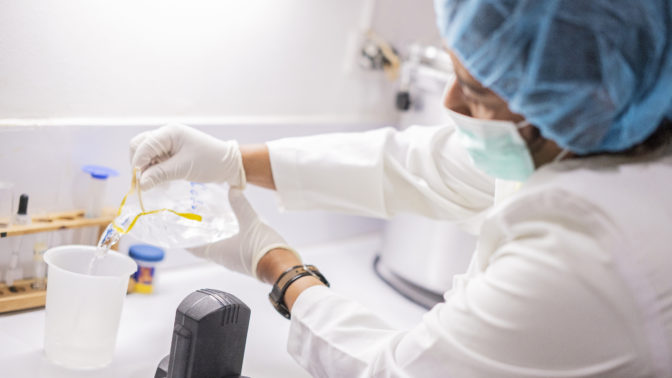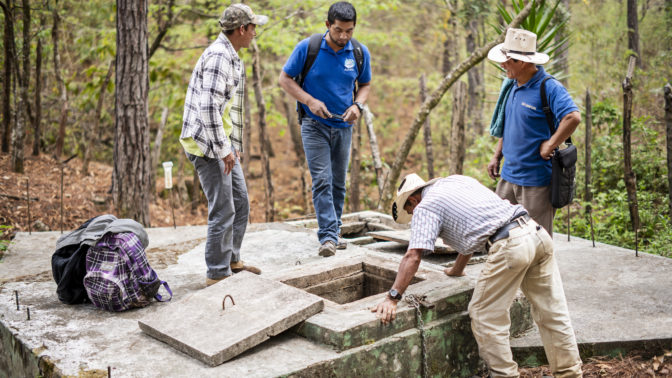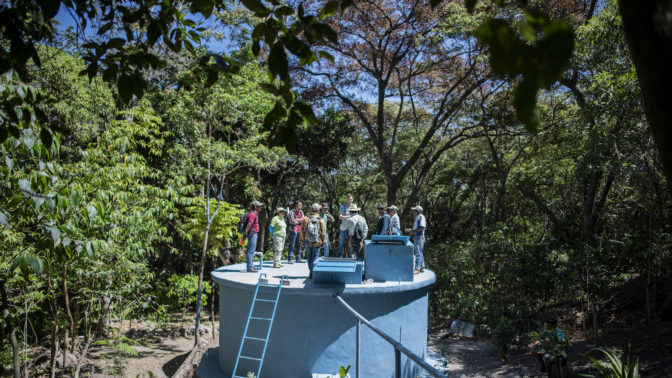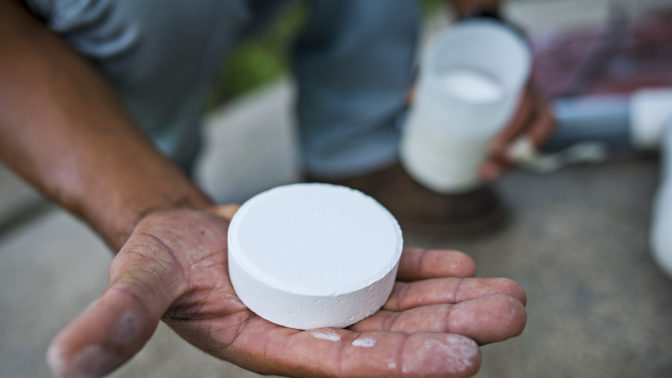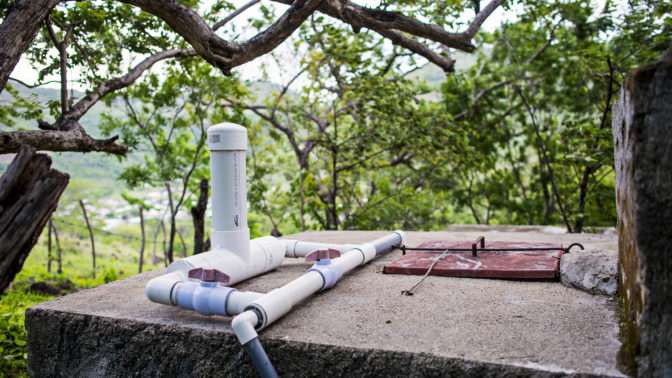Water Quality Solutions in Central America
Cova's (formerly EOS International) Water Quality Solutions in Central America technology, education, and monitoring can ensure that communities have safe drinking water continually.
Key Facts
- Cova provides water quality services to over 1,000 rural community water systems, ensuring over 500,000 Central Americans have access to safe drinking water on a continual basis.
- Cova's safe drinking water expansion focuses directly on meeting the UN’s Sustainable Development Goal 6.
- Through the creation of franchised chlorine distribution centers, chlorine tablets are distributed to ‘last mile’ communities.
- Entrepreneurs can make up to $150 per month at chlorine distribution centers.
- A Nicaraguan Ministry of Health study showed that in 70 communities where Cova recently implemented water treatment solutions, cases of diarrhea decreased by about 50%.
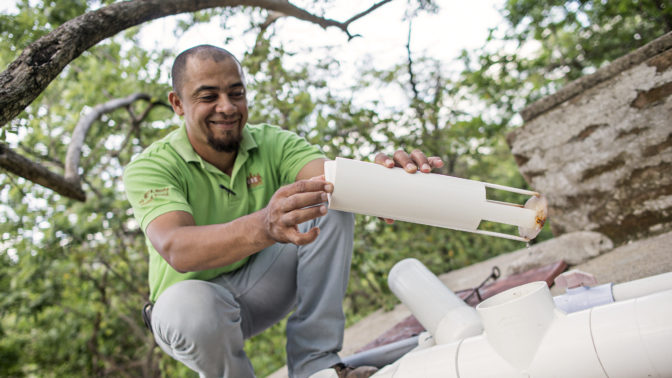
Key Features
Cova provides rural families in Central America with access to cost-effective safe drinking water solutions at the community level. Through Cova’s technology implementation, education, and monitoring, our team can ensure that communities have safe drinking water continually, allowing children to stay in school, parents to continue working, and communities to thrive.
Cova’s comprehensive model provides safe drinking water to over 530,000 people and includes the support of the ministry of health and local partners. This three-step model includes water quality testing and analysis to assess contaminations in the community water source, community water treatment and education to treat the contamination, and an ongoing chlorine tablet distribution through our circuit rider model, providing a sustainable supply chain. Our team provides ongoing technical assistance, training, evaluation, and chlorine tablet distribution to all 1,300 rural communities through a franchised network of 51 chlorine distribution centers. Cova has identified entrepreneurs and initiated these chlorine distribution centers to provide a financially sustainable supply chain of chlorine tablets, while also an opportunity for entrepreneurs to generate up to USD $150 per month while supporting clean water. All solutions are locally-operated and require co-financing from all involved and demonstrates that for just pennies a day per person, we could dramatically reduce the incidence of waterborne disease and save lives.
Social Impact
Cova’s safe drinking water expansion program focuses on rural populations in both Nicaragua and Honduras, which are Central America’s poorest countries. There are approximately 11,700 rural drinking water systems in these countries and more than 85% of these systems are contaminated with harmful bacteria. Contaminated drinking water is the main source of gastrointestinal diseases and, at times, death in children under five. When communities gain access to clean water lives are saved and illnesses are reduced, translating to a population that is healthier, better educated, and more productive.
The Nicaraguan Ministry of Health recently published the results of a study administered in 70 communities where Cova recently implemented water treatment solutions. The results found a 49% reduction in reported cases of diarrhea in 2018, since the Cova project implementation a year prior. The largest reduction in cases was in the age range of 5-9-year-old children, who experienced 73% fewer reported cases of diarrhea. That translates to 88 children who reported sickness in 2017 and have been healthy in 2018 in just these 70 communities included in the study. Referencing the results of this municipal health study can demonstrate the significant impact of Cova’s work throughout Central America on a daily basis.
Future Plans
While Cova has been able to meet the current growth demand, there are over 11,800 rural community water systems in need of water treatment or filtration. Recently Cova has piloted new models to rapidly scale the water quality solutions to new communities including clustering communities by partnering with the municipal health department and local organizations, to prepare and organize a large number of communities at a time. Another strategy that Cova is piloting to meet demand is to leverage remote sensor technology, to measure the water quality and the presence of chlorine in the water.
In this next phase of growth, Cova is aggressively seeking partners from the public and private sectors to join together to provide systems changes to the drinking water sector in Central America.
Main Target Group
-
B2C – Nicaraguan and Honduras Community Water Boards
- B2B – Municipal Governments, Public and Private NGOs
Main User
Rural communities consisting of families with minimal resources, often subsistence farmers making less than $2 a day in Nicaragua and Honduras.
Price (in USD)
Water Chlorinator ADEC – $180
Chlorine Tablet (varies by country) – $1.10-2.30
Presence/Absence Field Water Quality Test – $1.34
Laboratory Water Quality Test (14 parameters) – $64
Circuit Rider Monitoring (varies by location) – $14/community/month

